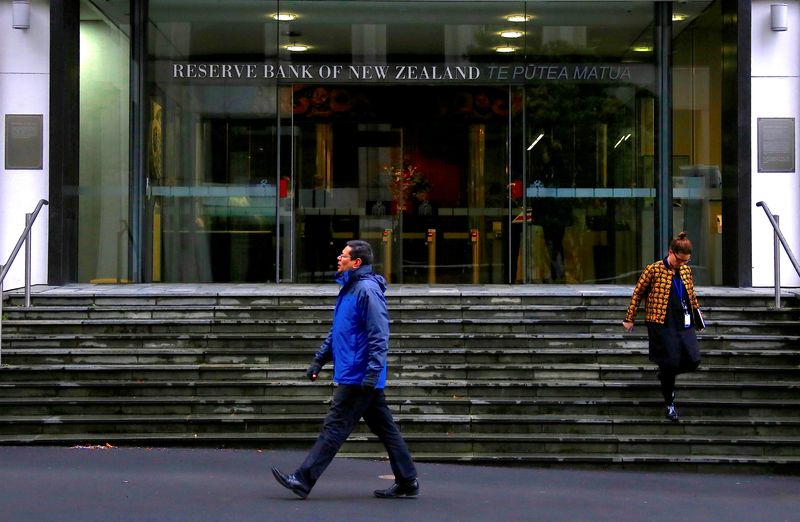By Lucy Craymer
WELLINGTON (Reuters) -The New Zealand central bank's dramatic easing in monetary policy was largely warranted over the COVID-19 pandemic, but with hindsight policy tightening should have occurred earlier in 2021, an internal report released by the bank on Thursday found.
The internal review, which looked at how the Reserve Bank of New Zealand (RBNZ) made decisions about monetary policy in the past five years and what lessons could be learned, found monetary policy decisions were consistent with the data available at the time, while worst case scenarios were avoided.
With the benefit of hindsight, however, the review said that monetary policy should have been tightened earlier in 2021 either by lifting the cash rate or reducing asset purchases. It identified nine areas for improvement including developing broader insight into the impacts of supply shocks on inflation.
RBNZ Governor Adrian Orr said that all nine areas had been on their radar.
"We are working very rapidly to take on board the lessons," Orr said at a media briefing following the release of the review.
TO GO EARLY
New Zealand's central bank started an aggressive tightening cycle in October 2021 and has increased the cash rate in just over a year to 3.5% from 0.25%. However, inflation remains red hot at 7.2%, well above its target rate of 1% to 3%.
RBNZ's chief economist Paul Conway told the briefing that even if monetary policy had been tightened earlier in 2021 New Zealand would still have inflation above target and most likely just below current levels.
Orr, who has faced criticism from New Zealand's opposition parties that monetary policy decisions have contributed to record high inflation, was reappointed by the government for a five year term earlier in the week.
The internal report was peer reviewed by Lawrence Schembri, former Deputy Governor of the Bank of Canada, and Warwick McKibbin, professor at the Australian National University.

McKibbin said that the RBNZ responded better to the COVID crisis than most central banks but that its new policy mandate and remit made monetary policy process more difficult to manage.
A number of changes have been made to the governing of the Reserve Bank of New Zealand (RBNZ) since 2017, including elevating financial stability, employment and housing affordability as priorities for the bank.